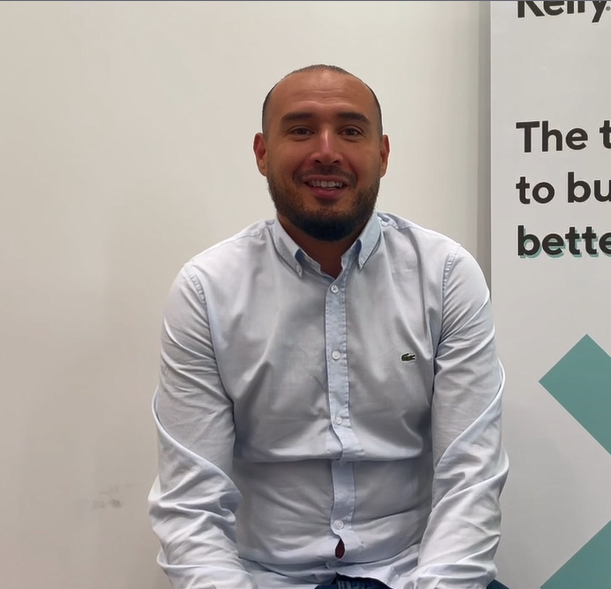06 Mar, 2023
‘Quiet’ trends seem to be here to stay. We’ve seen people ‘quiet quit’ by collecting their salary for doing the bare minimum. And managers have ‘quiet fired’ employees by slowly fading out their work and reducing communications. Now, ‘quiet promotions’ are loading employees up with additional work and responsibilities - without an accompanying increase in salary or job title. The one type of promotion you don’t want? A quiet one. There’s a global talent shortage in many sectors, and people are prioritising themselves by leaving jobs where they are underpaid or undervalued. So, to overcome those challenges… well, some employers are piling the extra work onto their remaining employees. The problem is, they aren’t heaping any of that additional salary onto them, too. And whether this is a new phenomenon, or if it’s just being noticed more now that people are more protective of their wellbeing (and their rights), it’s hard to say. Just how big is the quiet promotion problem? A huge majority (78%) of the American workers surveyed by JobSage believe they have received a ‘quiet’ promotion. And in a depressing twist, 68% have voluntarily taken on additional work in the hope that it will help them to win an actual promotion. And only 22% of people had intervened in attempts to quiet-promote them. The data doesn’t say whether or not that group of people were awarded the necessary pay rises to go with the additional work, or if that work was allocated elsewhere, such as to a new hire (or perhaps a less assertive colleague). Or, if they ended up having to do the extra work regardless. What does a quiet promotion look like? There are a few ways to tell if you’re in the running for a quiet promotion. Keep an eye out for these tell-tale signs: Colleagues who leave are not being replaced, or are replaced with more junior or part-time roles. Increasing disparity between your own workload and that of others on the same salary or with the same job title. Being required to cut back on responsibilities such as your own learning and development in order to take on more work. Being invited or required to attend meetings that were previously outside of the scope of your work. Being asked to take on new work, or to ‘help out’ colleagues or your manager with work you would not normally have done. How to avoid a quiet promotion Fortunately, there are lots of steps you can take that make it more difficult for managers to ‘quiet promote’ you. But before we dive into those, a word of caution! Within almost any role, there will be a requirement for you to be flexible. If, for example, a colleague leaves suddenly or has a very difficult-to-hire-for role, it’s not unreasonable for your boss to ask you to take on some of that workload. And there are other situations in which you may take on additional tasks, such as training replacements or acting as a representative for your department in consultations on a new project. So, before you go in ‘all guns blazing’, check that you’re not just being asked to show a little flexibility. But that said: don’t let anyone take advantage of your flexibility. Here’s how to protect yourself. Read your job description - often! Your job description (JD) includes (or at least, should include!) a list of tasks that you are required to do in order to receive your salary. Sure, it probably has a vague ‘and other tasks as required’ clause at the end. But that doesn’t mean they can stick you with a whole other person’s JD, too. So, familiarise yourself with what’s expected of you and regularly keep note of any tasks that you’re either not doing any more, or are being asked to do but are not on your JD. Those notes will be so important to you if you need to show your boss how your workload has increased. In some cases, they may not even realise. Data and evidence are your friend! Talk with your boss frequently Regular one-to-ones with your boss are a great place to discuss your career development and aspirations. For example, if you want a promotion, tell your boss that you’re actively working towards that. Ask for the job description for the role you want and see what the similarities and differences are. You’re less likely to end up doing that work by accident if you know that it is supposed to come with a pay rise and the new job title you want. Be assertive Being assertive is a fantastic skill to have in the workplace. If you’re naturally shy, introverted or anxious then the trick is to not react to things in the exact moment that they happen. If you are asked to do something and you believe it’s outside of your role, you can accept the task until you have time to formulate your argument against it. That will save you blurting out an ill-prepared response. A great structure for pushing back on work is: “I have noticed that [observation about additional workload]. This feels like a significant change in my responsibilities. Can we discuss how this might affect the rest of my work?” That way, you don’t sound like you’re saying ‘no’ outright or making a fuss. You’re just seeking clarification about your role boundaries and whether/how they’ve changed. Why quiet promotions harm company culture When it comes to giving people additional work without increasing their pay, there are some employees who just won’t stand for it. For example, if they’re too assertive or know their JD inside out! So that puts even more pressure on the others, which creates an inequality that can lead to resentment. And of course, when those people that have been supporting the weight of the organisation - for free - finally snap and leave? That’s 1.5-peoples’ worth of work that will need to be redistributed. It makes no sense from a cultural or economic perspective to ‘quiet promote’ people. What to do instead of quiet promotions? The world of work is changing rapidly. It’s important for organisations to be flexible in order to hold on to their talent. If you are a manager and your team has more work than people to do it, try one of the following: Hire more people (if you’re struggling to do so, consider being more flexible in terms of working from home, shift patterns and operational hours - for all of your employees). Offer optional paid overtime. Offer a secondment for people who want to take on extra responsibilities for extra pay; for example, trying out the next step in the career ladder (on full salary) for three months. Review your processes and eliminate any inefficiencies, automate tasks where possible. Outsource the work to contractors. Look at work experience or paid internship schemes (but don’t add ‘training the interns’ to anyone’s JD without a suitable raise!). There are lots of novel approaches you can take. Don’t be afraid to ask your people for their suggestions, too. The better rapport you build with your employees, the longer they’ll stay with you. Quiet promotions are not a long-term strategy. Being a great employer is.















